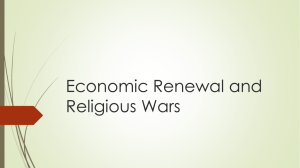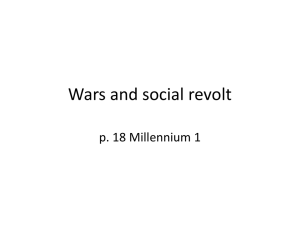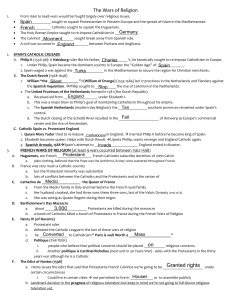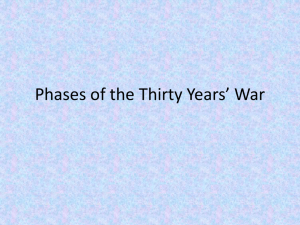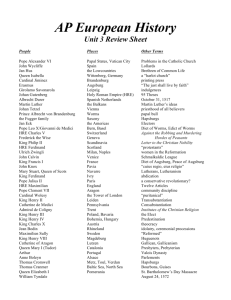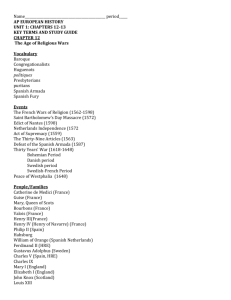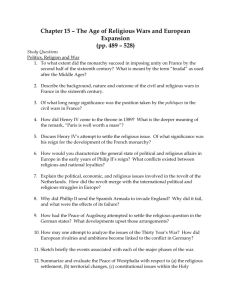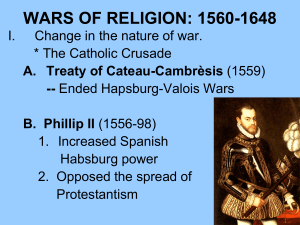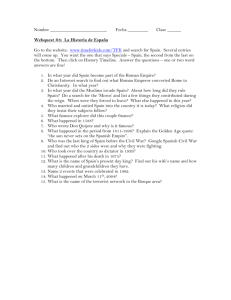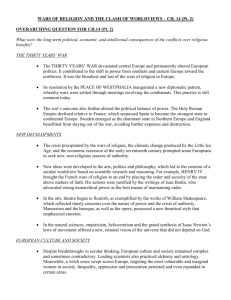Review Sheet for Wars of Religion, Spain
advertisement
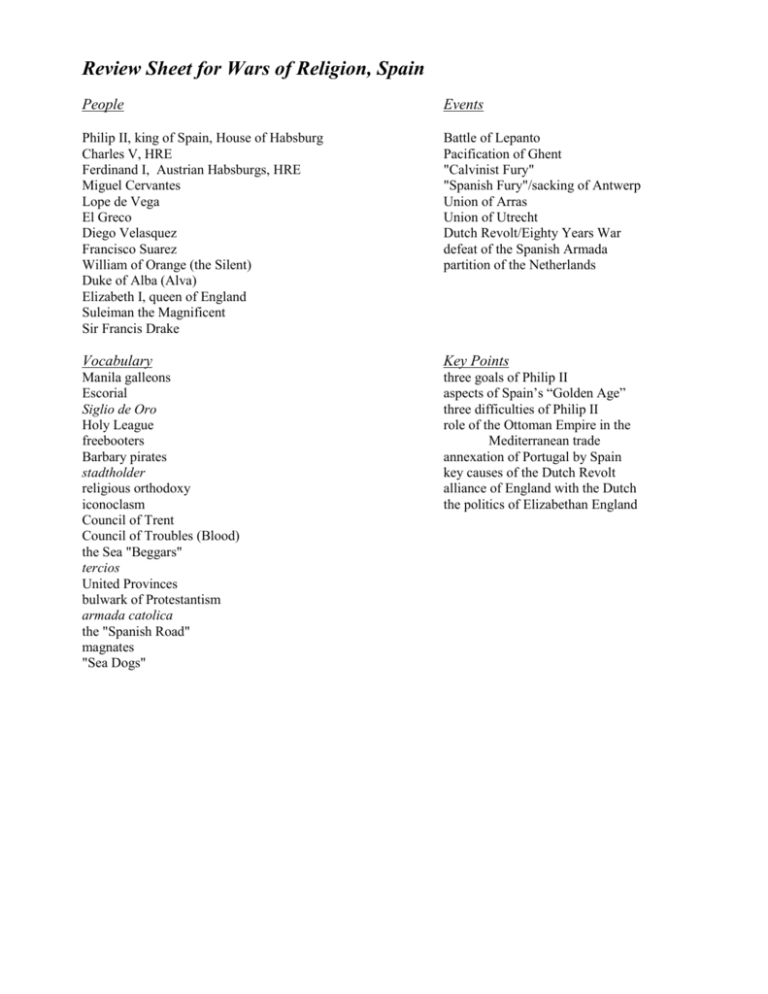
Review Sheet for Wars of Religion, Spain People Events Philip II, king of Spain, House of Habsburg Charles V, HRE Ferdinand I, Austrian Habsburgs, HRE Miguel Cervantes Lope de Vega El Greco Diego Velasquez Francisco Suarez William of Orange (the Silent) Duke of Alba (Alva) Elizabeth I, queen of England Suleiman the Magnificent Sir Francis Drake Battle of Lepanto Pacification of Ghent "Calvinist Fury" "Spanish Fury"/sacking of Antwerp Union of Arras Union of Utrecht Dutch Revolt/Eighty Years War defeat of the Spanish Armada partition of the Netherlands Vocabulary Key Points Manila galleons Escorial Siglio de Oro Holy League freebooters Barbary pirates stadtholder religious orthodoxy iconoclasm Council of Trent Council of Troubles (Blood) the Sea "Beggars" tercios United Provinces bulwark of Protestantism armada catolica the "Spanish Road" magnates "Sea Dogs" three goals of Philip II aspects of Spain’s “Golden Age” three difficulties of Philip II role of the Ottoman Empire in the Mediterranean trade annexation of Portugal by Spain key causes of the Dutch Revolt alliance of England with the Dutch the politics of Elizabethan England Review Sheet for Wars of Religion, France People Events King Francis I Catherine de Medici Jean Bodin King Henry III Henry of Guise Henry of Navarre/King Henry IV Bishop Bossuet Duke of Sully the Bourbon dynasty the Valois dynasty Cardinal Richelieu St. Bartholomew’s Day Massacre “Paris is worth a mass." Edict of Nantes War of the Three Henrys Vocabulary Key Points bonnes villes Huguenots mercenaries abjuration politiques raison d’etat Catholic League monarchies? seigneur bourgeois oligarchy causes of religious wars impact of inflation and anarchy significance of the St. Bart’s Day Massacre know at least three of the settlements of the Edict of Nantes why was there opposition to the spread of Calvinism by the French Review Sheet for Wars of Religion, Thirty Years War People Events Albrecht von Wallenstein Gustavus Adolphus Cardinal Richelieu of France ! HRE Ferdinand II of Austria (Habsburg) the Winter King Frederick of the Palatinate Louis XIII of France Louis XIV of France ! Cardinal Mazarin/the regency Defenestration of Prague Bohemian Revolt Edict of Restitution sack of Magdeburg battle of Rocroi Treaty of Westphalia Peace of the Pyrenees (1659) Vocabulary Key Points Peace of Augsburg Ecclesiastical Reservation sovereignty balance of power spheres of influence dynastic v. nation state modern diplomacy officer hierarchies tactics particularism Franco-Habsburg rivalry Protestant League Catholic League caracole the Baltic trade tercio pragmatism musketeer pikeman mercenaries causes of the war four (4) phases of the war and basics about each military innovations, leading to what many historians call the “Military Revolution” growth in size of armies destruction of German states the social and economic impact of the war continued fighting between France & Spain after the Peace of Westphalia 1618-48
